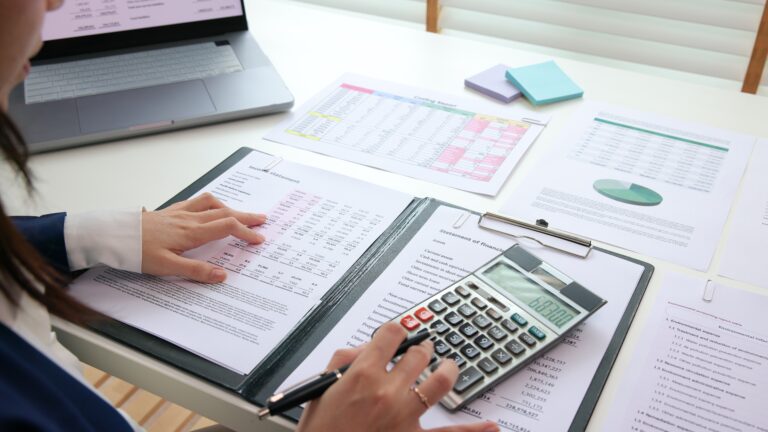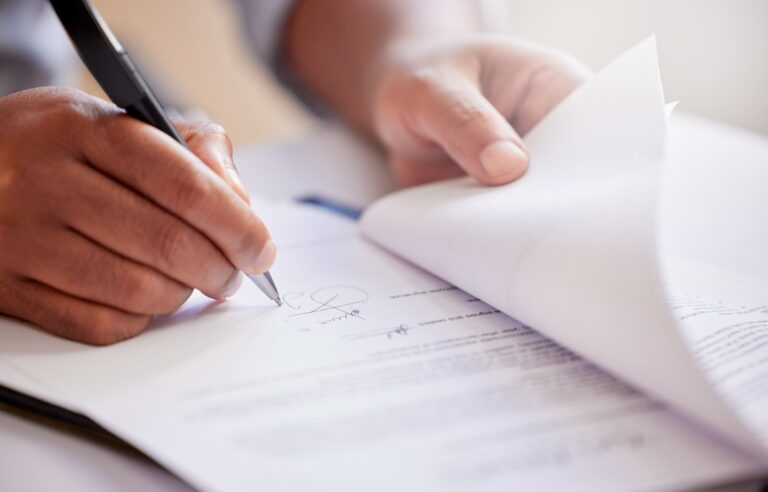What we have here is a failure to communicate. At this point, you’ve sent several collection emails (you can find our unpaid invoice email templates here) but, despite each of them being extremely well-written, this particular customer’s account remains in the red. The next logical step would be to pick up the phone and call them. But the last time you tried that with one of your clients, it ended in a shouting match.
Luckily, this time you can learn from your past mistakes and actually prepare for the call in ways that will keep the conversation moving and productive.
Before you dial: The collection call mindset
Charging into a collection call unprepared is a sub-optimal strategy. These calls run the risk of being uncomfortable or even confrontational, so getting them right often requires effort long before you pick up the phone. Prior to any call, you should:
1. Gather information
“Let me get back to you on that” is a perfectly fair statement for a discussion on who repaired your roof. But when you give that response during a collection call, you’ve just handed your customer an indeterminate extension on their payment.
Instead, have all of the necessary information available to answer any potential questions:
- Relevant invoices
- Exact amount owed
- Terms of sale
- Delivery receipts
- Notes from any prior discussions
2. Know the customer
Before dialing, you should also be familiar with the particular client’s account history. Is this their first missed due date? Have their payments been slowing over time? Are there any customer satisfaction issues? Depending on the health and length of the relationship, you might prepare some credit options.
3. Have a script
Knowing what you are going to say on a collection call before you need to say it can be an invaluable resource. After all, it’s easy to get sidetracked during a conversation — particularly if the other party is being less than cooperative. But a clear, direct script will empower you to keep the discussion focused on resolution and moving forward.
How to perform a successful collection call
By the time you hang up, if you haven’t secured some form of commitment from the customer, then you likely just wasted your time. Consider these four tips for more productive and profitable conversations.
1. Control the conversation
Collection calls require a delicate balance of assertion and flexibility. During these discussions, project confidence, and don’t be afraid to use silence to encourage the customer to be more responsive. While being assertive, however, avoid minimizing or ignoring the customer’s perspective. Listen carefully to their side of the story, and treat them with courtesy and humanity — it goes a long way during potentially stressful situations.
2. Create a record
Throughout the call, take copious notes. Write down any promises you are able to obtain from the customer. Note the time and date of the conversation as well as the name of the person you spoke with. If you need to call the customer again, these details will prove invaluable.
3. Resolve any excuses
Rest assured that if you spend any time conducting collection calls, you will hear many excuses, some of which are legitimate. No matter what the issue is, though, when the conversation is over, you should have removed any roadblocks that might be holding up payment.
Some common excuses you might hear are:
- I never received that invoice — Email it to them right away and confirm that they have received it before hanging up.
- I forgot to pay — Recognize that it happens to the best of us and try to secure payment or a promise for prompt payment.
- Cash is tight right now — Offer a payment plan or see if you can secure at least a partial payment to be remitted that day.
- The person responsible for payments isn’t here — Obtain their name and direct contact information, and have whomever you are currently talking to pass along a message that includes both your contact details and a call request.
4. Follow up
When closing out a collection call, always recap current expectations and any outstanding action items. Once the call is ended, immediately send a corresponding email to the person you spoke with and copy any additional applicable email addresses to raise visibility. Keep the message brief and focused solely on what needs to be done.
Initial call
This first call should be relatively friendly and upbeat. At this point, the payment will only be slightly overdue — around 15 days — so avoid sounding aggressive or overly accusatory. Focus on identifying and removing any potential roadblocks.
You: Hi, John. This is Sarah with ACME. I’m part of the AR team and I’m calling you to follow up on [Invoice Number] with an outstanding balance of [Amount]. It looks like it’s [XX] days overdue, so just checking that there wasn’t a problem with the invoice. And if everything is in order, I was hoping to find out when we should expect payment.
Scenario #1 — The customer states that there is no issue and that they will send out the check that day.
You: Thank you! I’ll make a note of it in your account and we’ll be on the lookout for your payment.
Scenario #2 — The customer states that there is an issue and that they will not be making a payment until it is resolved.
You: Well, let’s get that taken care of. What exactly is the issue that you’re running into?
Depending on the nature of the problem, try to resolve it before closing the call. Otherwise, clearly outline the next steps, and clarify when you (or someone else from your business) will be contacting them again.
Follow-
up call
By this point, you’ve likely sent several emails and texts, so the tone of this call needs to be a bit more forceful and insistent that some method of payment is initiated. If you successfully completed the first call, emphasize that the customer has at this point broken their promise to pay by the specified date.
You: Hi, this is Sarah with ACME. I’m reaching out again about [Invoice Number] for [Amount Owed]. We last spoke on [Date], when you stated that you would be making a payment for this invoice on [Date]. Unfortunately, we still haven’t received your payment.
Scenario #1 — The customer states that they have already sent the check.
You: Excellent. Could you share with me the check number and the date you mailed it so I can update the account?
Mail date and address possibilities
- If the mail date is within the past five days, state: OK, great. We will watch for the payment and reach out if any issues arise.
- If the mail date is longer than five days ago, respond with: That’s odd. It should have reached us by now. Could I confirm the address that you mailed it to?
- If the address is correct, state: Alright, thank you. We’ll investigate and call back. If you are unable to find the check, call the customer to issue a stop payment and have them cut a new check.
Scenario #2 — The customer said they could not send the check.
You: We really need to resolve this outstanding balance today, and I would like to help you keep your account current and avoid any further collection actions. We accept [Alternative, More Immediate Options — such as credit card, ACH, etc.], which one of those would you like to use? If needed, I can split the payment across different options. Or, if paying the total balance today isn’t possible, we can set up a payment plan.
Final call
If an account requires a third collection call, the actual invoice is likely more than two months overdue. This call should serve as a final demand for payment, clearly outlining the consequences if the customer fails to pay. Keep your tone professional and definitive.
You: Hi, John. This is Sarah with ACME. I’m reaching out again about [Invoice Number] for [Amount Owed]. Your account is now several months past due. I hope we can resolve this outstanding balance today because otherwise, I’ll have to refer you to a [Third Party — such as a legal firm or collections agency], which could negatively affect your credit rating, among other complications. I really don’t want to have to do that, so let’s work together to see if we can get this payment resolved.
Tackle collections with Invoiced
An effective collections program relies on more than just well-scripted phone calls. Employing a fully choreographed, multi-channel series of touches will better shepherd an outstanding invoice to payment.
Invoiced’s accounts receivable automation software facilitates this process, with fully customizable invoices, automated e-mail reminders, multiple payment options, easy-to-set-up integrations, a convenient customer payment portal, and more, businesses who use Invoiced have everything they need right at their fingertips.
To learn how you can simplify your collections efforts and promote easier, more prompt payments schedule a demo of our A/R collections software today.





